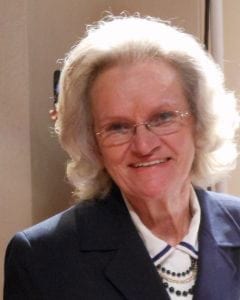At any time of the day, in any hospital, a nurse is giving instructions to a parent, spouse, child, sibling or friend of a patient, as to how to take care of the patient once they return home. Some have been caregivers for many years, and some are just beginning the journey. Most never expected to be in such a position. It can feel a bit overwhelming.
In the early years of caring for my daughter who had a rare disease, I didn’t understand the necessity of taking care of myself.
During the weeks that she was hospitalized at the age of four, I spent as much time as possible at her bedside. I didn’t eat well and I didn’t sleep well. Consequently, when I was able to bring her home from the hospital, I came down with the flu. The real flu. The one that makes you so sick you can’t get out of bed for days. I was thankful that my parents were able to help us during that time. It was a hard way to learn a lesson, but I’m grateful that I was able to learn about self-care early in the game.
In subsequent years, my daughter had many hospitalizations. When she was in the hospital, I kept healthy snacks with me for the times when it was difficult to leave her bedside, but whenever possible, I did leave her to find nutritional meals.
As anxious as I was at times, I had to trust the medical community to care for her when I was not able to be there. Since I knew that I needed to get enough sleep, I often fell asleep praying for her, as well as for the people who were taking care of her, when I was at home. I had to discipline myself to eat – not just eat, but eat properly. I had to be well enough to take care of her every time I brought her home again, as there were times she needed extensive care.
Since I’ve seen other caregivers suffer serious health problems because they put off taking care of themselves, despite the fact that they had symptoms they knew needed medical attention, I’d like to pass along some thoughts to anyone who must take care of a loved one.
- There is nothing “selfish” about taking care of yourself, so you don’t need to feel guilty for doing so.
- In order to preserve my mental health, I always had a good book with me while sitting by her bed. We all have different ideas as to what makes a book a good book. For me it was something inspirational, spiritual or funny and lighthearted. Sometimes I read aloud something amusing that I knew would also amuse her.
- Make connections with other caregivers who can encourage you and understand your feelings.
- Try not to neglect others in your circle of family and friends. Some of them might be good listeners.
- If someone asks if they can help, find something they can do for you. Fold laundry, run errands, deliver a meal, keep the patient company so you can get out for awhile. People who love you want to help, so let them!
- The most important thing to remember is that taking care of yourself is not a luxury, it is an absolutely necessity if you want to be able to care for someone else.

Share this rare disease story and let us know your rare disease experience today.






